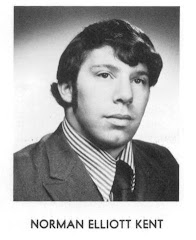Tuesday, September 11, 2012
NORML By Your Side
Tuesday, August 28, 2012
Pot Injustice Pervades Public
Sunday, August 26, 2012
City Tries to Snuff Out Pot Ad
Friday, February 24, 2012
A Legal Take on Ryan Braun

by Norm Kent
Vice President, National Organization for the Reform of Marijuana Laws
After being exonerated by major league baseball yesterday from his potential suspension, Ryan Braun owes all fantasy baseball players an apology.
In his press release acknowledging the support he had from his family and friends, he forgot to thank all those early-drafting fantasy players who stood by him and selected him in the top 20 picks. After all, as the NL MVP he was one of baseball's best players in 2011.
But now let me speak as a constitutional rights lawyer. Neither a technicality nor a loophole today freed Ryan Braun from a 50 game suspension. What saved Braun today was the fact that we leave in a society which is supposed to preserve due process, insure fairness, and honor agreements protecting the rights of employees. Baseball is no different. Players are very well paid obviously, but as Curt Flood, challenging baseball's free agency system years ago once stated, 'A high paid slave is still a slave.'
Today, baseball players are hardly slaves. Free agency has given them vast negotiating rights, but that does not change the fact that drug testing procedures in America are inherently flawed. Every day, using a substantially compromised field test, cops arrest innocent people for purportedly carrying contraband that turns out not to be so. The list and litany of false positives could and do fill a book, and I cite a few examples in a link at the bottom of the page. Beware of Dr. Bronner's natural, herbal, liquid soaps. They could put you in jail.
Nevertheless, in this era of steroids and performance enhancing drugs, major league baseball players and its management negotiated drug-testing protocols to insure the integrity of the game and trust of its fan base. However, as lawyers for the players sat down to work out the drug testing initiatives, it was imperative that mechanisms and processes be implemented that would insure the integrity of drug testing and fairness for both sides.
Scientists and lawyers had seen for years a panoply of poorly administered procedures which compromised the accuracy of results. These included a variety of situations, from not properly storing drug specimens at specific temperatures, to failing to initiate a timely testing of the sample. The reason meticulous guidelines and standards were imposed for all drug testing was because the failure to do so would render the test inherently unreliable, and could very well lead to false positives wrongly accusing an otherwise innocent individual.
The issue today with Ryan Braun is apparently chain-of-custody, but the reason chain-of-custody is critical is because the failure to preserve it exactly could potentially compromise the integrity of the test. That is why the failure to safeguard chain of custody was negotiated as a material factor in relying upon a drug test in the first place- because there is a history of insanely false positives when chain-of-custody protocols are not exactingly followed, or the specimens are not tracked thoroughly.
As the Ryan Braun case unfolds, it appears those procedures, agreed upon in writing by major league baseball and the players’ association, were not followed. He was ‘acquitted’ of wrongdoing not by a technicality. He was ‘acquitted’ of wrongdoing because of the wrongdoing by major league baseball operatives not abiding by the agreement they entered into.
This is not about a player getting off. This is about a contract being honored; about both parties being faithful to the rules and regulations they mutually negotiated before a player’s career could be interrupted and his reputation irreparably stained.
It is not that drug testing lost today. Fairness won. It is not a technicality that saved Ryan Braun. It is that we as a society have preserved due process, and the same procedures that have been used to affirm a dozen previous rulings on steroids, have now been applied to exonerate one. That is the way it should be when one side does not abide by its agreements. This time, it was the owners that lost, but neither did baseball win.
What won was the right of a censured athlete to argue an appeal and mandate that the landlords of the game respect the rights of its tenants pursuant to the terms of a lease they mutually negotiated beforehand.
For more information on how drug testing procedures in America are flawed, visit this article I published at http://jaablog.jaablaw.com/2011/08/18/field-drug-tests-fa.aspx It is hard to believe a bar of chocolate or some herbal incense can put you in jail, but in our Amerika, it still can.
As for Norm Kent, the fantasy baseball player, I should have known better. I should have had more faith in my own words, and drafted Ryan Braun in the freaking first round. My bad.
Sunday, January 8, 2012
A Felon for Life

I was trying to think of the most common questions I am routinely asked as a criminal defense lawyer- other than the predominant one, “How can you defend a guilty person?”. I will answer that on another day.
What's right behind that one? The most recurring inquiry for a lawyer representing someone charged with a crime, is if you can win your client a “withheld adjudification.” And everyone wants to know just what that means. Of course everyone wants to be acquitted or have their cases dismissed. But if the odds of that are unlikely, you want to know what is the next best alternative.
Well, first of all, there is no such thing and no such word as “adjudification.” I don’t know how the common occurrence of misstating the word came about, but a court may do one of two things with the disposition of your case- it can adjudicate you guilty, or withhold adjudication of guilt. An adjudication means you have been found guilty and are stuck forever with that finding, in this lifetime and the next. It means you have a permanent criminal record, which can never be sealed or expunged, removed or eliminated, absent a legislative change or pardon from the Governor.
An adjudication of guilt on a felony strips you of a breadth of your rights as a citizen, not only your right to vote but to hold a variety of public service jobs, as well as professional licenses. It takes away your driver’s license for two years, and it impacts your right to collect government benefits. Thus, if you are entering a plea to a criminal charge anytime anywhere, you want to seek a withheld adjudication of guilt, whether it is for a misdemeanor or felony.
Very often, the battery charges evolve out of barroom brawls in which intoxicated patrons do not even know what is going on at the time. Sometimes a good Samaritan attempting to render aid to a police officer is seen by an arriving officer as possibly assaulting their fellow officer. They are then suddenly struggling with one officer while trying to help the other. In the melee that follows, they wind up in jail too. In other instances, of course, people, good people sometimes do get drunk, and then they act badly. There are no second chances.
Even though it is only the least serious felony, a third degree, if you strike a cop carelessly in a moment of anger or intoxication, you are likely to become branded a felon for life. In addition, more and more legislators are now talking about expanding the concept of mandatory adjudications to many other offenses. Florida, for example, now includes fleeing from a police officer as one of those offenses. Heaven help you if you do not hear those sirens.
Two years ago, I handled a case for a drag queen, Tiny Tina, who had been adjudicated for engaging in a lewd act in 1976, when she hosted a wet jockey contest at the Copa Bar. In the year 2010, she was denied a job at an assisted living facility when a state records search revealed that 34-year-old finding of guilt. Fortunately, I eventually had that horrible ruling overturned.
Indeed, it is getting tougher to seal or expunge any record of your arrest for misdemeanors or felonies. For example, charges that are now disqualifying, and make you ineligible for an expunction, include sexual offenses, acts of domestic violence, battery, residential burglaries, stalking and fleeing police. State law allows you only one expunction ever, and only if you have never been ‘adjudicated.’
When the term ‘adjudication’ is used in traffic court, the meaning is drastically different. You see, traffic tickets are considered only ‘civil infractions.’ Therefore, if you are found guilty and ‘adjudicated,’ it simply means that you are getting points assessed against your driver’s license by the Department of Motor Vehicles. It does not mean that you have been found guilty of a crime. If that is the worst thing that ever happens to you, then you will have lived a very decent life.
Many people come to Florida on vacation and wind up on probation. Many come from urban populations where certain behaviors are threated more leniently and liberally. In Dade County, however, the average traffic ticket will cost you about $250. In Broward, if you commit a felony, you are more likely to go to jail than almost any county in the state. Sell just one ounce of marijuana to an undercover police officer and our state attorney’s office will make you a plea offer of no less than 18 months in Florida state prison.
Ultimately, these harsh laws present grave consequences to the average citizen who makes one costly mistake. It means that a momentary lapse today can mean a lifetime of explaining it away tomorrow. What it means is your record and your life can become subject to permanent public scrutiny, accessible to anyone- friends, enemies, lovers, creditors, employers, credit agencies, and anyone with a computer that has Internet access.


















.jpg)
















